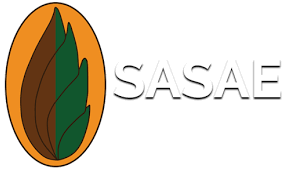Sustainable agricultural online course development framework for community-based transformative learning
DOI:
https://doi.org/10.17159/2413-3221/2022/v50n1a13336Keywords:
Agricultural training, E-learning, Sustainable course developmentAbstract
This paper examines the change drivers and challenges involved in the transitioning of the Water Research Commission’s Amanzi for Food training of agricultural educators and farmers’ face-to-face co-engaged course to an online course aligned with Education for Sustainable Development (ESD) (www.amanziforfood.co.za). The study drew on system thinking to analyse components within the course development activity system. Insights from stakeholder engagement and expansive learning processes fed into key emergent themes which informed the e-learning processes. The research highlights how the development and implementation of a sustainable training programme using Information and Communication Technology (ICT) tools bring together learning processes occurring within different interconnected dimensions and in complex and unpredictable ways. It became clear that to utilise e-learning as a mediating artifact capable of facilitating social transformation towards suitability expansively, certain conditions needed to be in place. The drivers that impacted the development of e-learning as a mediating tool included the need to find an alternative learning platform for broader dissemination of Rain Water Harvesting & Conservation (RWH&C) knowledge and alignment with the United Nations Sustainable Development Goals (SDGs). This study concludes that this transition requires specific tools, adequate time, an understanding of e-learning pedagogical processes and learning platform functionalities (requiring upskilling of the digital literacy of the development team and other actors), and workable data-efficient or data-free, smartphone-friendly training and communication platforms.
Downloads
References
ACADEMY OF SCIENCE OF SOUTH AFRICA (ASSA). 2017. Revitalising Agricultural Education and Training in South Africa. Consensus Study. Academy of Science of South Africa.
AGUAYO, C. 2014. The use of education for sustainability websites for community education in Chile. Ph.D. thesis, University of Waikato, Hamilton, New Zealand.
DEPARTMENT OF AGRICULTURE AND FISHERIES (DAF). 2008. Evaluation of agricultural education and training curricula in South Africa. The Republic of South Africa.
DEPARTMENT OF AGRICULTURE, FORESTRY AND FISHERIES (DAFF). 2010. Agricultural Education and Training Access Barriers Report. Department of Agriculture, Forestry and Fisheries
ENGESTRÖM, Y. 1987. Learning by expanding: An activity-theoretical approach to developmental research. Helsinki: Orienta-Konsultit.
ENGESTRÖM, Y. 1999. Activity theory and transformation. In Y. Engeström., R. Miettinen & R. Punamäki (Eds.). Perspectives on Activity Theory (pp. 39-52). Cambridge University Press.
ENGESTRÖM, Y. 2016. Studies in expansive learning. Learning what is not yet there. Cambridge University Press.
LOTZ-SISITKA, H., PESANAYI, T., WEAVER, K., LUPELE, C., SISITKA, L., DENISON, J., VAN STADEN, W. 2016. Water use and food security: Knowledge dissemination and use in agricultural colleges and local learning networks for home food gardening and small-scale agriculture. Volume 1: Research and development report. WRC Report No. 2277/1/16
VAN STADEN, W. 2018. A review of Climate-Smart system innovations in two Agricultural Colleges in the North West Province in South Africa. Ph.D. thesis, Rhodes University. Available at: http://hdl.handle.net/10962/63426
VAN STADEN, W. 2020 Climate Responsive Innovation within the Agricultural Curriculum and Learning System. SAJEE, 36, 73-87.
VYGOTSKY, L. S. 1978. Mind in society. The development of higher psychological processes. Cambridge: Harvard University Press.
Downloads
Published
Issue
Section
License
Copyright (c) 2022 W. van Staden, L. Sisitka, S. van Lingen

This work is licensed under a Creative Commons Attribution 4.0 International License.
How to Cite
Funding data
-
Water Research Commission
Grant numbers K5/2277







.png)